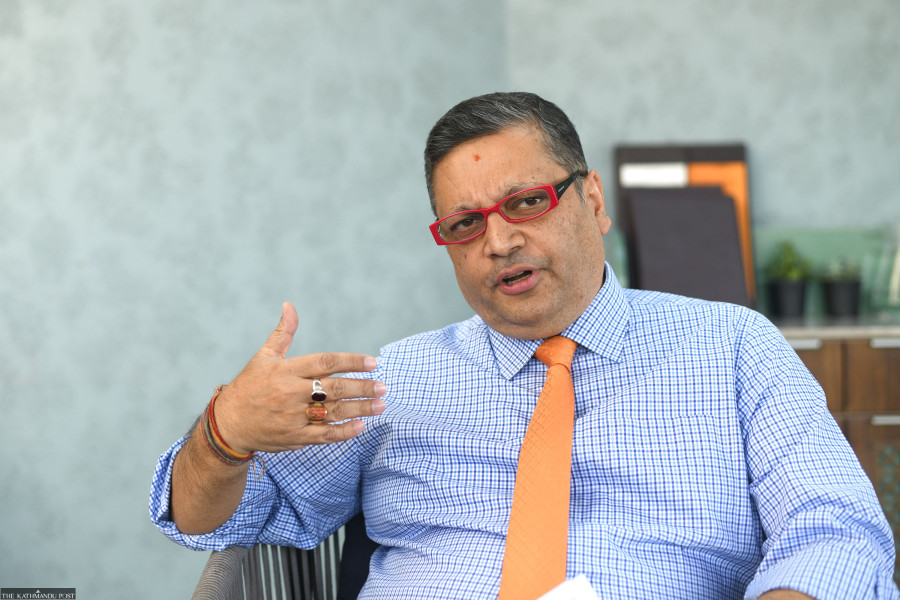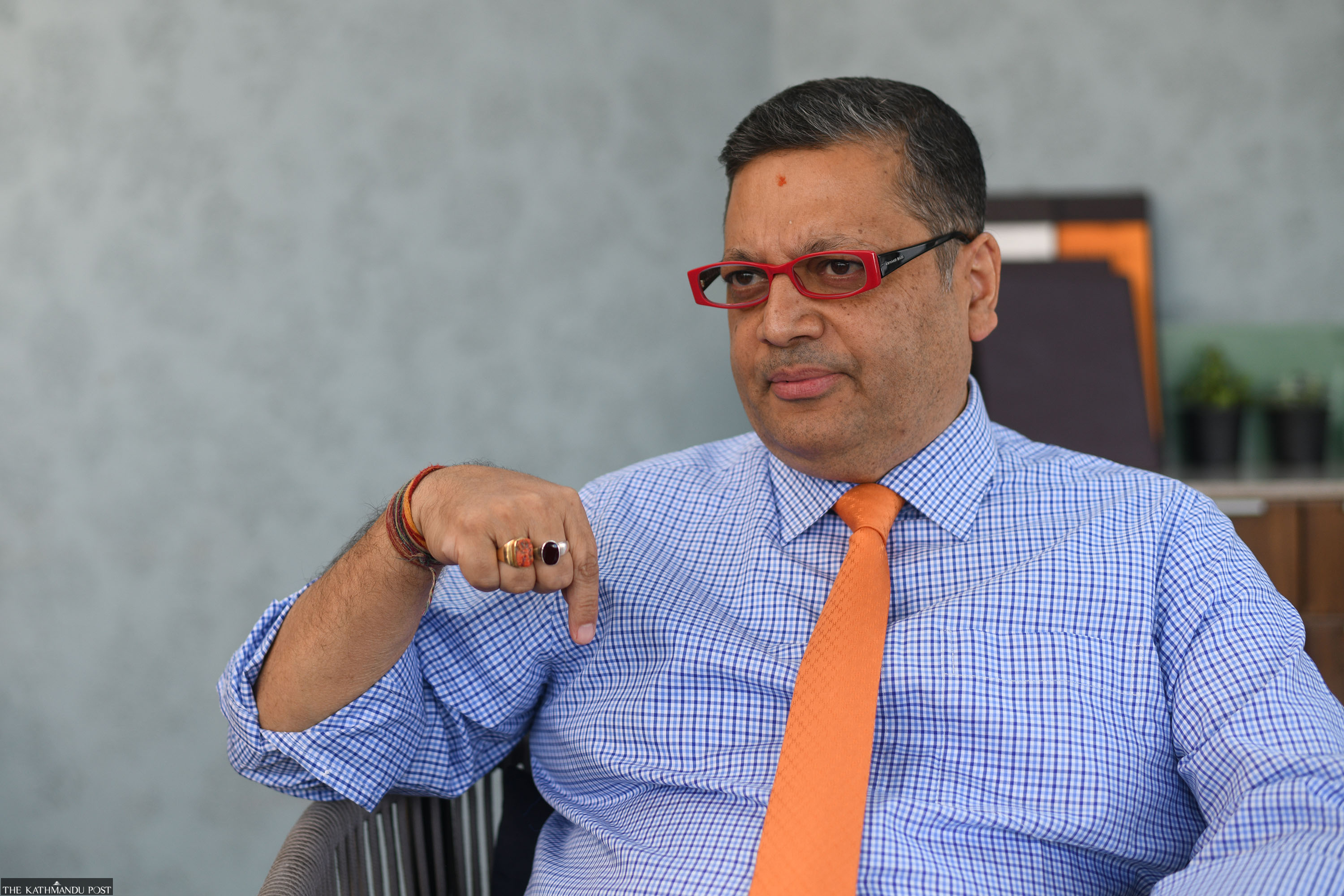Interviews
International community will closely watch March 5 polls
Its role in the recent protests suggest Nepali Army is better than other state security forces in the region.
Biken K Dawadi
The Gen Z protests of September 8 and 9 were not an isolated event in South Asia. Such protests have been rocking nations in our immediate neighbourhood for the past few years. The ramifications of the protests on Nepal’s foreign policy are still uncertain. The Post’s Biken K Dawadi sat down with foreign affairs expert Nishchal Nath Pandey for a comparative analysis of the Gen Z protest with similar uprisings in South Asia and a discussion on various angles of foreign affairs in relation to the protests.
What were the similarities between the Gen Z protests in Nepal and other such uprisings in our immediate neighbourhood?
There have been multiple instances of rather rapid regime change in South Asia in the past few years. President Ashraf Ghani fled Afghanistan in August 2021 after the Taliban took control of the state. In July 2022, Gotabaya Rajapaksa, the president of Sri Lanka, fled to the Maldives, then to Singapore, after failing to address the concerns of widespread protests led by civilians. Prime Minister Sheikh Hasina resigned and fled the country in August 2024, landing in India after weeks of deadly protests, putting an end to her two decades of dominance in Bangladesh politics.
A common element in these protests was that they happened after the Covid-19 pandemic. There were multiple reasons behind these protests, but one common factor was that these states failed to deliver a proper national response to the pandemic, leaving the citizenry in financial hardship. In Nepal, the state failed to introduce and implement adequate measures to quell the effects of the pandemic on the general public, creating unemployment and disrupting livelihoods.
All of the said uprisings took place in the region before the Gen Z protests in Nepal. Why didn’t we learn?
The protests in Sri Lanka and Bangladesh were warning signals for Nepal. But we missed the warning from these protests that when the state fails to improve conditions for the citizens, the civilians respond. Instead, our political class started the propaganda that Nepal was doing well. They compared our foreign reserves to those of Sri Lanka and concluded that our economy is in a sound state. They compared our regime to that of Bangladesh and concluded that its traits are not similar to those of Nepal. The people did not believe in these conclusions drawn by the political class. As a result, the protests happened in September.
The situation we faced was unprecedented for Nepal. The executive, legislature and judiciary were all arsoned and vandalised as people had stopped believing in them. Whatever the narratives set by the political class, the civilians form their opinions based on their own experience. They did not address the message of the public, which was crucial at that point, resulting in the ‘lightning strike’ on September 8 and 9.
What differences did you see in the handling of these protests across the region?
In three cases of uprisings that took place in South Asia before Nepal’s Gen Z protests, the leaders had to flee their countries. Ghani fled Afghanistan, Rajapaksa fled Sri Lanka and Hasina fled Bangladesh. In our case, the Nepali Army was able to safeguard the head of state and head of government despite widespread destruction and violence. This suggests the Nepali Army is better than other state security forces in the region. One that is trusted by the people. And they increased the public trust by not opening fire at the protesters. International observers were impressed by the army’s ability to restore law and order so swiftly.
What do you have to say about theories that the protests were orchestrated by foreign actors?
Conspiracy theories are floating on social media platforms that the movement was orchestrated by ‘foreign hands’. But they have no evidence or are unsound logically. For one, the nationality of such hands has not been established e. Make no mistake here: The Gen Z protests were a Nepali-led, Nepal-grown movement, against the situation of malgovernance with people having no other alternative.
How do you evaluate the reaction of the international community to the Gen Z protest and the interim government?
The international community is closely following the developments in Nepal. International actors are going to take a new approach to Nepal in response to the drastic changes post-Gen Z protests. There has been a very positive response from India, with PM Narendra Modi mentioning and praising the resilience of the Nepali people during an event in Manipur. The speculation that China is unhappy with the formation of an interim government because it is reacting slowly to the changes in Nepal is not a well-founded argument. China’s approach to foreign policy is such that it observes before it reacts. It was unprecedented for the Dalai Lama to congratulate the PM of Nepal. We have to analyse this from all angles and perspectives.

The interim government is yet to appoint a foreign minister. How do you see this?
Of course, appointing a foreign minister is desirable, but the appointment is not the most pressing issue. In fact, the state can still function in the absence of such an appointment, as the prime minister can hold the portfolio. It is not an unprecedented practice. Former Prime Minister of India Jawaharlal Nehru held the foreign ministry for more than 15 years until he died in 1964. In Nepal, Girija Prasad Koirala served as his own foreign minister during his first term as prime minister, from May 1991 to November 1994. He also held the post for the first part of his second term in 1998. The interim government can focus on its mandate of holding free and fair elections and, consequently, ensure a smooth transition to an elected government, rather than the not-so-pressing issue of appointing a foreign minister.
How do you see the interim government’s decision to recall several ambassadors?
The positions at constitutional bodies and diplomatic positions have been compromised in Nepal for the past few decades. They started treating these positions as spoils of elections that are due to be shared after forming coalitions. It is wrong to randomly appoint individuals near and dear to top political leaders to these positions and recall them at whim.
It is a given that we need to start appointing qualified youths to these positions. But that should not be the prime concern of the interim government. The parliament and the elected government formed after the March elections must ensure a transition into such good practices.
The interim government has two options to deal with the politically appointed ambassadors. One, it can recall and reshuffle the ambassadors immediately and risk a tarnishing of our nation’s reputation. Frequent changes in ambassadors lead to foreign nations decreasing their trust in us. Two, the government can leave the politically appointed envoys till the March elections and risk them adding no utility value to diplomacy, simply using up state coffers for no reason.
The interim government has recalled such envoys, but there is a high chance that they will not be replaced during the tenure of the interim government. Such a decision will stop the practice of treating diplomatic positions as spoils of coalitions.
What should be Nepal’s foreign policy approach in the aftermath of the Gen Z protests?
South Asia is becoming a stage of intensified competition for geopolitical influence. Nepal should not be a playground for diverse external forces.
Being in such a sensitive position, we have to reflect on our own inadequacies and ensure that our domestic political instability does not give rise to foreign policy errors. To bring stability to our domestic politics and strengthen the legitimacy of our elected government, the interim government must focus on its primary mandate: To hold free and fair elections on March 5. Second, it must ensure a smooth transfer of power to the elected government. The elected government must correct the mistakes of the past.
The international community will be following our elections closely. The interim government must pave the way for holding the elections on time. While conducting them, nobody should be left out—neither the leftists, nor the centrists, nor the rightists—as they all are part of our society. The government must take measures to engage everyone in dialogue so that the government formed post-election will not have to deal with claims of illegitimacy.
It is also important to maintain law and order to legitimise the elections. Programmes must be run to improve the police’s morale, and measures taken to regain the weapons looted during the protests on September 9. In addition, the thousands of criminals who fled prisons during the unrest must be apprehended quickly to ensure societal harmony.




 13.12°C Kathmandu
13.12°C Kathmandu




.jpg&w=200&height=120)







